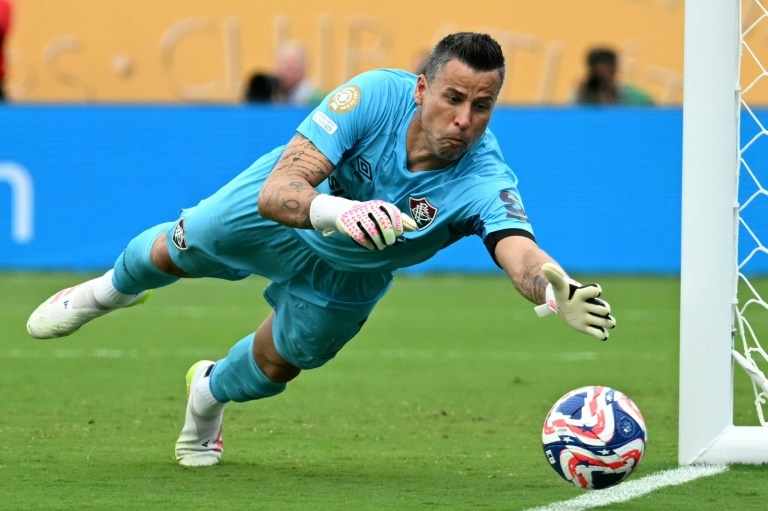The Influence of Artificial Intelligence in Sport

Artificial Intelligence is rapidly transforming industries across the globe, and the world of sport is no exception. From enhancing athletic performance to revolutionizing fan experiences, AI technologies are playing an increasingly central role in how sports are played, analyzed, and enjoyed.
4 months ago
Whether it’s football, basketball, tennis, or athletics, AI is helping teams, organizations, and creators make smarter decisions backed by data. This shift is not only boosting performance on the field but also changing how fans engage with the games they love.
One of the most significant applications of AI in sport is in athlete training and health management. Through advanced tracking tools and machine learning algorithms, coaches and sports scientists can now monitor player movements, biomechanics, and vital signs in real time.
Wearable tech collects massive amounts of data—from heart rate variability to joint angles—and feeds it into AI systems trained to detect patterns. This allows trainers to spot early signs of fatigue or injury risk and adjust training loads accordingly. It’s a proactive approach that prioritizes long-term athlete health without sacrificing competitive edge.
AI is also revolutionizing how teams approach strategy. Gone are the days of relying solely on a coach’s instinct and limited stats. Today, AI can process hundreds of variables from past matches, training sessions, and even live gameplay to uncover tactical trends and insights.
These systems can analyze player positioning, ball movement, and even opponent behavior to suggest optimized formations or in-game adjustments. Coaches and analysts are now equipped with tools that offer a deeper, more objective understanding of the game, giving them a strategic edge at every level of competition.
The use of AI isn’t confined to the athletes and coaching staff—it’s also reshaping how fans interact with sport. Intelligent algorithms now curate personalized content, generate real-time highlights, and even simulate match scenarios for virtual viewers.
Fans receive updates tailored to their favorite teams and players, while chatbots and AI-powered assistants offer instant access to stats, news, and interactive features. These innovations are making the fan experience more engaging, accessible, and immersive—whether they’re in the stadium or watching from home.
Nowhere is the impact of AI more apparent than in football, where data has become a central part of match preparation and analysis. Teams, broadcasters, and digital platforms alike are embracing AI to deliver deeper insights into player performance, tactical dynamics, and historical trends.
Platforms that specialize in AI football predictions are leading this movement by leveraging data science to produce structured match previews and in-depth analysis. These solutions highlight how machine learning can enrich the understanding of the sport—not through speculation, but through intelligent interpretation of data.
By combining expert knowledge with AI-powered systems, football analysts and fans can explore the game from a whole new perspective—one that’s grounded in objectivity and scale.
As AI technology continues to advance, its applications in sport are set to grow even further. We’re already seeing experimental uses in:
Automated referee assistance and decision-making
Predictive modeling for injury prevention
Real-time opponent analysis during live matches
AI-generated sports journalism and commentary
The fusion of AI with traditional coaching, management, and storytelling is enabling more informed decision-making and innovation throughout the industry.
Artificial Intelligence is becoming an indispensable part of the sporting world. Its ability to process massive data sets, uncover insights, and deliver real-time value is changing how sport is played, analyzed, and experienced.
Whether it's optimizing training regimes, refining match tactics, or enriching the fan journey, AI is helping athletes and organizations perform at a higher level—and helping fans see the game in new ways. As technology and sport continue to evolve together, the future promises even more intelligent and engaging experiences for everyone involved.
One of the most significant applications of AI in sport is in athlete training and health management. Through advanced tracking tools and machine learning algorithms, coaches and sports scientists can now monitor player movements, biomechanics, and vital signs in real time.
Wearable tech collects massive amounts of data—from heart rate variability to joint angles—and feeds it into AI systems trained to detect patterns. This allows trainers to spot early signs of fatigue or injury risk and adjust training loads accordingly. It’s a proactive approach that prioritizes long-term athlete health without sacrificing competitive edge.
AI is also revolutionizing how teams approach strategy. Gone are the days of relying solely on a coach’s instinct and limited stats. Today, AI can process hundreds of variables from past matches, training sessions, and even live gameplay to uncover tactical trends and insights.
These systems can analyze player positioning, ball movement, and even opponent behavior to suggest optimized formations or in-game adjustments. Coaches and analysts are now equipped with tools that offer a deeper, more objective understanding of the game, giving them a strategic edge at every level of competition.
The use of AI isn’t confined to the athletes and coaching staff—it’s also reshaping how fans interact with sport. Intelligent algorithms now curate personalized content, generate real-time highlights, and even simulate match scenarios for virtual viewers.
Fans receive updates tailored to their favorite teams and players, while chatbots and AI-powered assistants offer instant access to stats, news, and interactive features. These innovations are making the fan experience more engaging, accessible, and immersive—whether they’re in the stadium or watching from home.
Nowhere is the impact of AI more apparent than in football, where data has become a central part of match preparation and analysis. Teams, broadcasters, and digital platforms alike are embracing AI to deliver deeper insights into player performance, tactical dynamics, and historical trends.
Platforms that specialize in AI football predictions are leading this movement by leveraging data science to produce structured match previews and in-depth analysis. These solutions highlight how machine learning can enrich the understanding of the sport—not through speculation, but through intelligent interpretation of data.
By combining expert knowledge with AI-powered systems, football analysts and fans can explore the game from a whole new perspective—one that’s grounded in objectivity and scale.
As AI technology continues to advance, its applications in sport are set to grow even further. We’re already seeing experimental uses in:
Automated referee assistance and decision-making
Predictive modeling for injury prevention
Real-time opponent analysis during live matches
AI-generated sports journalism and commentary
The fusion of AI with traditional coaching, management, and storytelling is enabling more informed decision-making and innovation throughout the industry.
Artificial Intelligence is becoming an indispensable part of the sporting world. Its ability to process massive data sets, uncover insights, and deliver real-time value is changing how sport is played, analyzed, and experienced.
Whether it's optimizing training regimes, refining match tactics, or enriching the fan journey, AI is helping athletes and organizations perform at a higher level—and helping fans see the game in new ways. As technology and sport continue to evolve together, the future promises even more intelligent and engaging experiences for everyone involved.







Comments